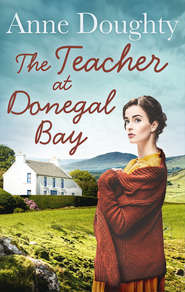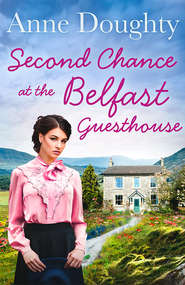По всем вопросам обращайтесь на: info@litportal.ru
(©) 2003-2024.
✖
Last Summer in Ireland
Автор
Год написания книги
2019
Настройки чтения
Размер шрифта
Высота строк
Поля
Chapter 13 (#litres_trial_promo)
Chapter 14 (#litres_trial_promo)
Chapter 15 (#litres_trial_promo)
Chapter 16 (#litres_trial_promo)
Chapter 17 (#litres_trial_promo)
Chapter 18 (#litres_trial_promo)
Chapter 19 (#litres_trial_promo)
Chapter 20 (#litres_trial_promo)
Chapter 21 (#litres_trial_promo)
Chapter 22 (#litres_trial_promo)
Chapter 23 (#litres_trial_promo)
Chapter 24 (#litres_trial_promo)
Chapter 25 (#litres_trial_promo)
Chapter 26 (#litres_trial_promo)
Chapter 27 (#litres_trial_promo)
Publisher’s Note (#litres_trial_promo)
Acknowledgement (#litres_trial_promo)
Dear Reader (#litres_trial_promo)
Excerpt (#litres_trial_promo)
About the Publisher (#litres_trial_promo)
1 (#ulink_93c33437-033e-5c92-9815-32a89bd4c0e4)
ARMAGH, 1986
This morning, after the most ghastly ten minutes in Mother’s bedroom, I went to Emain. I just took off, as Sandy would say. And the moment I crossed the main road and set foot in the lane that weaves its way between the scatter of farms and strikes west to run along the foot of the great mound, I felt better, so much better I could hardly imagine the waves of nausea that almost overcame me the minute I’d pushed open her door.
I walked quickly, my eyes eagerly seeking out the familiar features, once the focus of my childhood imaginings: the oak where Robin Hood crouched ready to pounce on the Sheriff of Nottingham, the hazel bush whose fruit bestowed wisdom on those who partook of it, the twisted hawthorn beneath whose branches the little people danced on moonlit nights. Smiling to myself as the memories flooded back to me, I turned aside into McCreesh’s field and tramped through the rough grass by the hedgebank.
‘Oh wonderful,’ I said aloud, as I found the primroses, the patch I’d known for thirty of my thirty-five years. Last autumn the hedges had been brutally cut back by a machine that left the branches bruised and torn. I feared the primroses might have gone. But here they were in full flower, the pale leaves offering the faintest perfume to the morning sun as I bent to touch their soft petals.
The flutter and scuffle of birds followed me all the way down the lane. A blackbird was singing its heart out on the pointed gatepost of Toner’s farm. I glimpsed a wren, minute and secretive, hopping through the ground ivy at the foot of the hedgerow.
Had I not caught sight of a man perched on the low roof of a cottage painting the inside of the chimney stack, I would have danced for joy. I had been let out. I had escaped. From what I had escaped, or from where, I could not say, but the feeling of freedom buoyed me up like a following wind, my feet barely touched the ground as I sailed along the lane heading for the familiar green gate.
‘It’s because these are my hedgerows,’ I confided to a thrush, so absorbed in smashing a snailshell that he didn’t hear me coming. Other places were all very well. I could enjoy Hampstead Heath or St James’s Park, and Matthew’s home village in Norfolk was wonderful with those great skies arcing over the marshes and the heathlands. But this was my own place, this was part of me, and I had been lonely for it for so long.
As I closed the small, green gate carefully behind me, I wondered how I could possibly be lonely for a place I had had to visit regularly in the last eight years, even more often this last year, the year of my mother’s dying. But no answer came to me as I began the climb along the outer ramparts, across the ditch and up to the top of the great mound.
Every time I begin the climb, I feel just as excited as I did the very first time my father took me there. I’m so convinced that this time will be even more exciting than before that I forget how very steep the mound is. In my enthusiasm I move far too fast. By the time I reach the top, I’m always out of breath.
This morning, I pushed it so hard I had to flop down on the grass to recover myself. For ages, I just sat there, not quite believing it. Suddenly, summer had come and here was I, at Emain. The sun was warm on my skin, its brilliant light spilled over all the little fields and the patches of woodland spread out below me, bringing them alive, picking out every soft, new leaf, every fresh-painted farm and cottage.
The top of the mound is completely healed again after the excavations. For years, I longed for them to be over. I could not bear the nakedness of those scraped surfaces, the rubble walls dated and labelled, the post-holes numbered and colour-coded. Now I had my Emain back, soft and green, keeping its own secrets and sharing mine.
When finally I did get my breath back, I stood up and scanned the horizon. Whatever the weather, however clear or misty the day, I’m always aware how for millennia, men and women have stood on this high point. Here they have stood in pride and hope, in fear and expectation, century after century, their eyes turned north to the glitter of Lough Neagh, or west to the hills of Tyrone and Donegal, or south and east towards the lowlands of the Bann and the Lagan, where the old road goes through the mountains to Tara.
On my very first visit, my father had told me how the warrior princess Macha had traced in the dust with the pin of her brooch the outline of the citadel. For Emain was the heart of the country of the Ullaid, the old Kingdom of Ulster, the setting for the great stories about Cuchullain and the Knights of the Red Branch.
Intensely aware of the long past, I stood in sheer delight, watching the high white clouds stream out of the west against a pure blue sky, their fleeting shadows racing across the grass like companies of phantom horsemen summoned into battle.
‘You’ve a great imagination.’
I could hear my mother’s voice, as clearly as if she had been standing beside me. If you wrote the words on a page, they would look harmless enough. They might even be read as a compliment. But the written word can’t conjure up that characteristic intonation, that inflection of the voice, that habitual edge of criticism; nor can it show the tightening of the lips, the ironic smile, the upward movement of the chin and the dismissive shake of the head.
The last thing you ever did where Mother was concerned was take what she said at its face value.
And now she is gone. After all the months of waiting, of knowing the diagnosis she refused to acknowledge, the months of phoning and visiting hospital and then hospice, of trying to behave better than one felt. Yet when the end came, it was still a shock. I didn’t even suspect anything from Sandy’s tone when I picked up the phone last Friday evening.
‘I’ve been trying to get you since five-thirty. I tried Robert Fairclough’s, but you’d gone.’
‘Yes, I went for a drink with Pat at the Festival Hall. She’s over for the Tyroneweave Exhibition.’
The pause at the other end was only momentary.
‘Mother passed away at twenty-five past five.’
Passed away. To write that the men and women who once stood upon this mound had passed away was appropriate enough, but for my plain-speaking sister to use the words was more of a sudden shock than the news itself. But we choose our words to match our feelings and when it came to the point, Sandy’s feelings were clearly not what she had expected. Waiting in the queue for security at Heathrow next morning she still sounded totally distraught.
‘I’m sorry, Dee, I haven’t the remotest idea what to do at a time like this. There’s a Which paperback I meant to buy.’
She looked so uneasy and so unhappy I’d have liked to put my arms round her, but that’s not something you can do with Sandy. I couldn’t do it when she was nine, or nineteen, and I certainly couldn’t do it now she was twenty-nine.
Our mother’s fierce hostility to physical contact of any kind between women had gone deep with Sandy and this was no time to upset her any further. All I could do was reassure her that I knew the rules, the unwritten ones that guide the community at times like this. I knew every line that would have to be spoken and every gesture that would have to be made from years of observation and hours of listening to Mother as she assessed the relative success or otherwise of the many funerals she had attended.
‘I’m prepared to do it their way, if I can manage it,’ I said, as we crossed the wet and windy tarmac. ‘How do you feel about it?’
‘I don’t,’ she shouted back over the whine of the engines. ‘Just let’s get it over with. Tell me what to do and I’ll do it. I won’t be happy till I’m walking back up that corridor.’
Sandy was as good as her word and Matthew, my husband, as reliable as ever. We performed the prescribed rituals in the prescribed fashion. Even Mother might have admitted that her funeral ‘went off very well.’ After it was all over I was left with no more than a handful of fragments and images flickering inside my head like the fleeing shadows on the grass.







